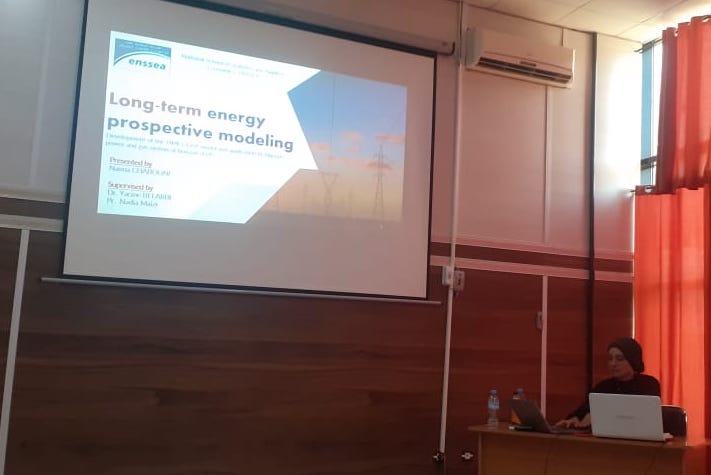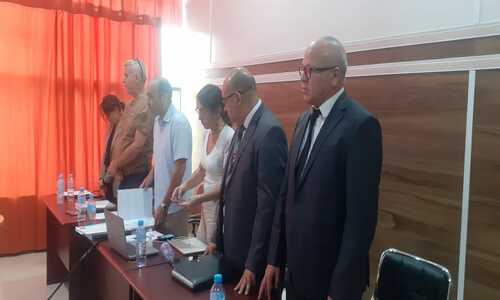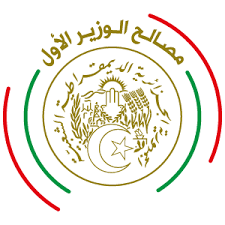

Within his academic activities, the Commissioner of CEREFE, Prof. Noureddine Yassaa, has participated as a member of the jury, in the examination of the doctoral thesis of Mrs Naima Chabouni, at the National School of Statistics and Applied Economics (ENSSEA), under the direction of Professor Yacine Belarbi and Professor Nadia Maizi.
Here is its abstract:
Nearly sixty years after independence, Algeria is still looking for a development model that can deliver its economy from dependence on hydrocarbon revenues and eradicate the symptoms of “Dutch Disease”.
Algeria is facing a major energy dilemma that consists, on the one hand, in meeting the growing national demand, and on the other hand, in maintaining sufficient export volumes to support its economy and meet
its state budget. Confronted with current and future challenges, the Algerian government is now looking for alternatives to reduce the country’s economic dependence on the hydrocarbons sector, implement an
adequate energy transition policy, and set targets that comply with international standards, namely, the promotion of renewable energies as a green, clean energy solution.
In this work, we intend to model the 2070 Algerian power and gas system to evaluate how different scenarios, from both the demand and supply sides, could impact the 2070 energy mix. Moreover, this study aims to assess the financial consequences and environmental impact of shale gas deployment as an alternative to natural gas, responding to the various challenges mentioned.
In recent years, energy planning has become, on the one hand, a complex process that considers multiple
variables and constraints, and on the other hand, a reliable tool that can draw a framework to examine different policies and scenarios at national, regional, and global levels[1]. Accordingly, due to the
multiple challenges and the continued oil crisis, Algeria needs to implement forward-looking policies and outline several strategies and policies that may ease the transition. Hence, an energy planning model
needs to be developed to help policy-making assess technology changes regarding the electric and gas system to achieve a new energy model paradigm featuring less natural gas and alternative forward-looking
policies and strategies. To that end, we will establish different demand scenarios up to 2070 that will drive the TIMES-DZA model we developed. A prospective analysis will be achieved, enabling us to study the
technological substitutions in the production of electricity through a detailed description of the technologies and a characterization of the demand while accounting for the resource potential, the climatic
variable, and the possibility of renewable energy integration in the future energy system.

